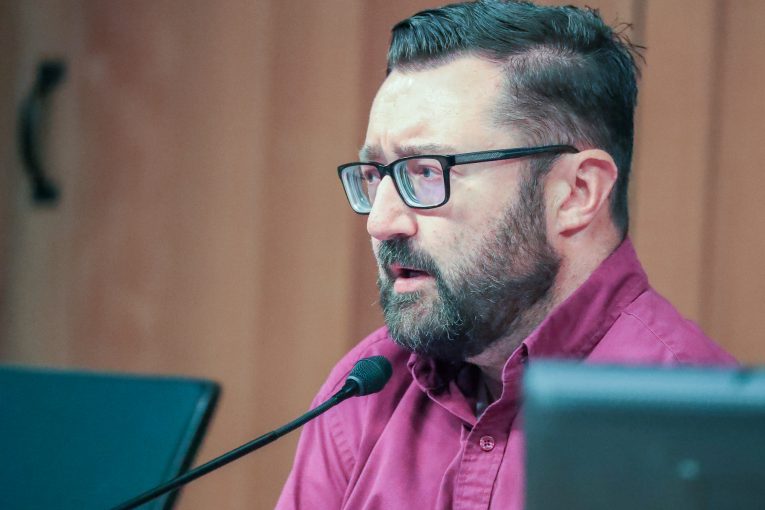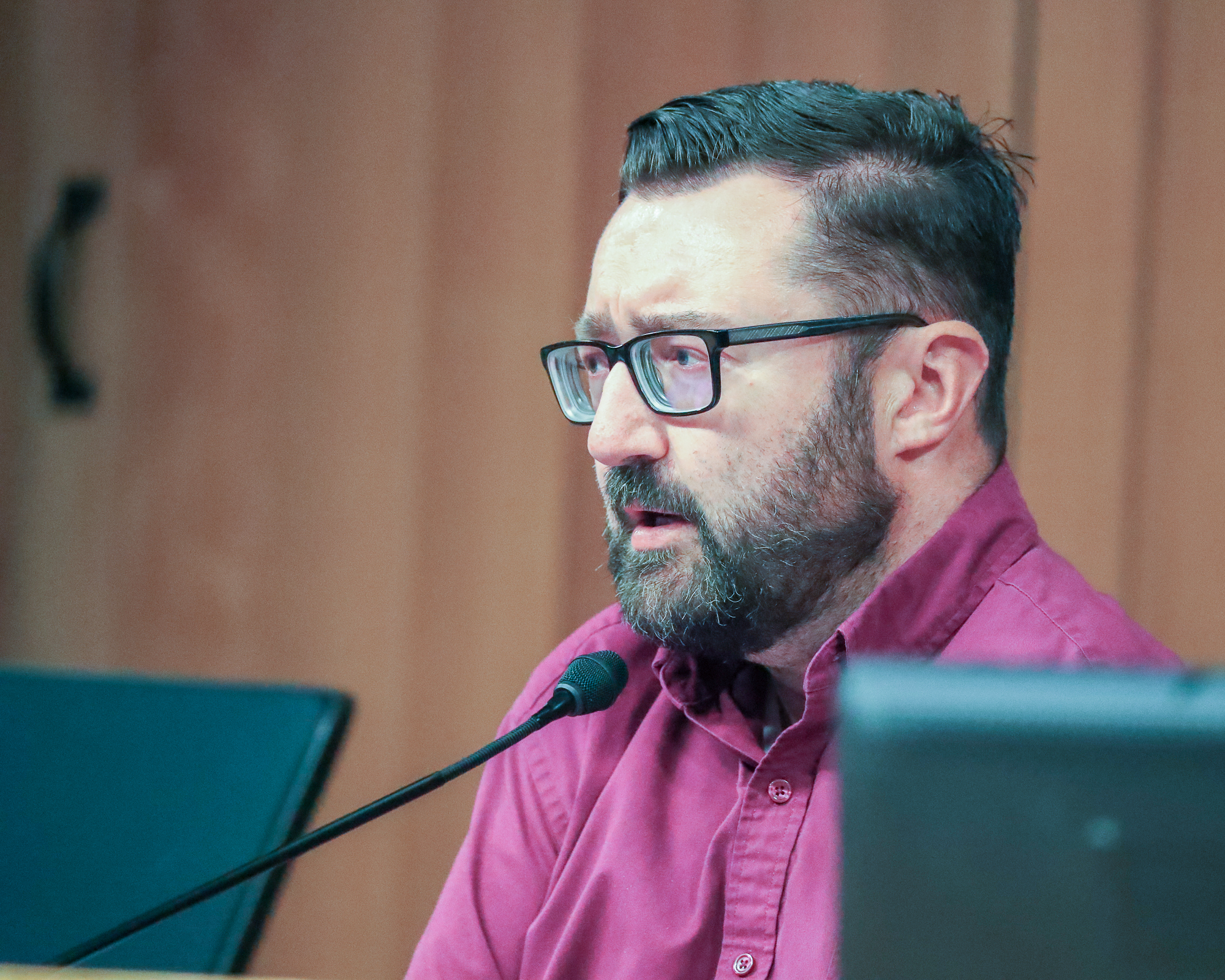

By David M. Greenwald
Executive Editor
Davis, CA – Apparently if you do this job for long enough, history will repeat itself. That is definitely what happened on Tuesday. Council put a resolution on the Gaza on the council agenda.
I knew exactly what this would mean. Why? Because I have both been there and done that. Back in January 2009, a similar situation occurred. Community members flooded the chambers. There were hours of public comment and other important items were heard after one in the morning.
There was, at that time, a crucial report from the Police Ombudsman on a Davis Fire Department investigation that was presented in the wee hours of the morning, when no one was fresh or able to be discerning.
History repeated itself. Five hours of public comment. Other items such as the Village Farms EIR and the designation of the new mayor were both heard after midnight.
I have not written much about the situation in Gaza. Here I will share a few quick thoughts. The situation there is horrible and tragic. I would argue that there is no  clear and easy answer to the situation. I would also add that it is one of the gravest situations in the world today, but it is a situation that is clearly of importance to many in the community, but it is not a matter that the Davis City Council is likely to have any bearing on.
clear and easy answer to the situation. I would also add that it is one of the gravest situations in the world today, but it is a situation that is clearly of importance to many in the community, but it is not a matter that the Davis City Council is likely to have any bearing on.
If you want to argue that people in this community are hurting and needed an outlet for that pain, you get no argument from me.
As I have argued a number of times, the City Council is in fact the legitimate voice of government for the residents of Davis and if one of the uses the community wants is to speak out on these kinds of issues, I have no real problem with it.
To me this was a problem not of subject matter jurisdiction, but rather priorities and timing. This issue should not have caught by surprise. We had a relatively recent example of exactly how long this would take and how it would play out. And frankly, is was almost identical in length and content.
They had two other issues that from the standpoint of their actual responsibilities should have been more important. Gaza may be the most important issue on the world stage today, but from the standpoint of the city council, their job was to process the alternatives to the EIR for Village Farms and designate the succession for the mayor and vice mayor.
That doesn’t mean that Gaza could not be heard. It doesn’t mean that Gaza could not have a full hearing even.
They had two options. Option one was to hear the Gaza issue after all the other business.
Option two was they could have heard the Gaza issue on its own special meeting where it was the only item to address.
Frankly there was a third, hybrid possibility. They could have taken 45 minutes of public comment at 7 pm and then moved on to the rest of their agenda, and take up the rest of the public comment at 10 pm.
That would have allowed the public business to take place while, at the same time, the issue of clear public concern could have still been addressed.
The only good news this time—as opposed to in 2009—is the cost of doing this was a tired council when the more material issues took place. In 2009, that turned into a tragic farce. But at least this time, it probably didn’t have a huge impact on actual public policy.
But that does bring me to the discussion of mayor that appears to have taken place after 1 am.
Mayor Will Arnold noted that his year as mayor did not go as expected and was filled with unanticipated challenges. (Granted, as we know, a few years ago the mayor had to face the tragic killing of Natalie Corona in 2019 and then, in 2020, the COVID shutdown).
Mayor Arnold then offered to stay on another year.
Previous Mayor Gloria Partida diplomatically stated, “Thank you Will. I have appreciated your leadership. I think you were thoughtful… And it has been a tough year.”
She said, “It’s not anything against you being Mayor… but if you are Mayor for two years, it sets a precedent.” She noted, “It leaves out an entire election cycle of people that will not ever be mayor.”
She noted, “We’re not a strong mayor city so it’s not as though we’re going to influence policy a lot.”
Ultimately, the council decided to continue to support “one year precedents” as Bapu Vaitla put it.
Josh Chapman became mayor. Bapu Vaitla was named vice mayor.
I will add that the decision to go with this system was decided by the council around the time that the electoral system was shifted to district elections.
While this is a General Manager model, the city did have some discretion. For a long time, they named the mayor based on who received the most votes at the previous election. Other systems still elect mayors independent of the other council seats.
They choose to make it a rotational basis which, in fact, makes the person in charge mayor in name only.
I joked with Josh Chapman this week that “anyone can become mayor.” And while that’s not really true, as you have to get elected to council, once you are, you are almost assured of being mayor once in your first tenure, and likely twice if you are reelected.
In so doing, we have taken really any prestige out of being mayor. That’s the way they wanted to do it. I’m not sure that’s the best approach overall, but that’s what they decided to do.
My last thought in this column is to note that we are all anticipating some sort of announcement by Will Arnold as to whether he will seek a third term.
Clearly, with three announced candidates – Dillan Horton, Linda Deos and this week Victor Lagunes, the anticipation is that he will not run for reelection, Arnold did stun us four years ago when it ended up being Brett Lee rather than Will Arnold who declined to seek reelection.
We have not heard much about the other two seats—Josh Chapman and Donna Neville, who was just elected this year to fill out the remainder of Lucas Frerichs’ term.
So stay tuned.


I’ve never quite understood what the point was of some Podunk Town USA voting on some symbolic stance or position on a national issue. It seems like a waste of time and energy. Is it just to make the populace feel better about themselves? Or is there some actual political weight? Do the local politicians then meet with the local US congressional representative or US Senator?
Does the Mayor have any significant political powers over the other members of the City Council? Is it an executive role and if so what makes it an executive role?
No.
It’s a PO role
It is a resume box check office.
So what’s the point of the Mayoral position other than just being a talking figure head (with the same political powers as the other council people)? It sounds like just another reason why it’s hard for any singular vision for the city can be accomplished to any significant degree. If every level of decision making is bogged down by the need for majority collaboration and consensus (yes it is an important part of the process but not the only one) then little of any major significance will ever get accomplished (death by committee and deliberation). That’s the reason behind an executive part of the government at the state and federal levels. The people elect a leader who has the time to push and significantly influence above or outside of the legislation to get things done. While I like some of the City Council people (I don’t really know any of them personally); I’ve complained about lack of leadership in Davis for years. Maybe some of that lack of leadership is baked into the system.
As a general law city, Davis is constrained in how it organizes the government. Going to a charter city status would, if I recall, provide more options.
https://www.publicceo.com/2009/06/breaking-down-california-city-governments/
Is the mayor responsible for setting the agenda? Even for a ‘weak mayor’ system, that’s not insignificant.
I agree with Hiram. For instance, the Mayor could have altered the final agenda to one of the alternatives David suggested.
It was”virtue signaling”
To delay addressing the potentially devastating “Covell Farms” issue into the “wee hours” in order to debate our City’s stance on Middle East policy demonstrates that our City Council protocols are broken. “City” council means taking care of “city” issues. This means paying attention to infrastructure, development and schools. Not as “Sexy” as world politics, but frankly, that’s the damn job.
Covell Farms is not devastating unless you are a NIMBY.